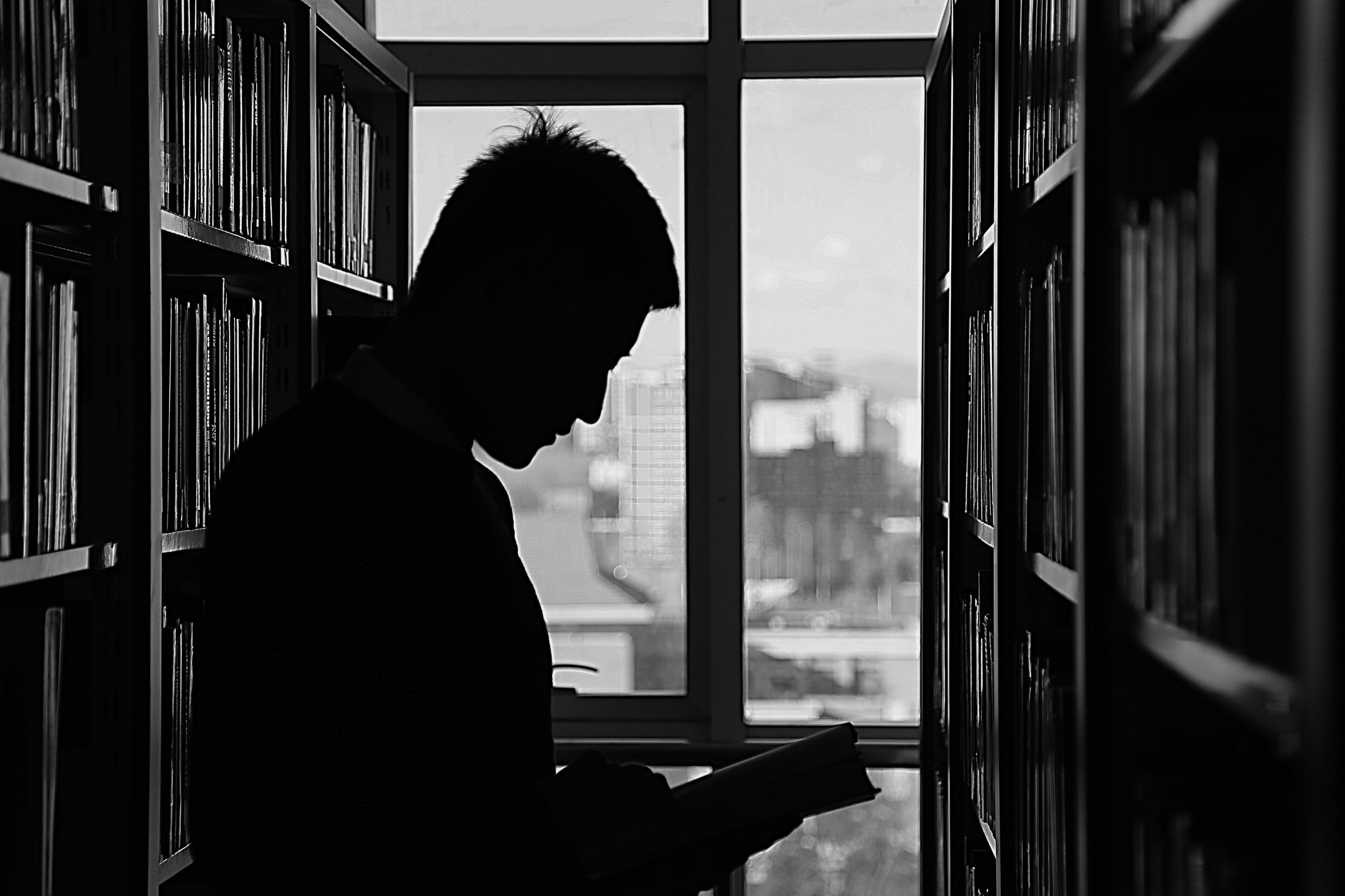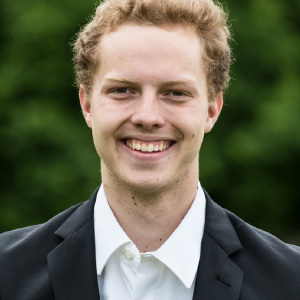As Pittsburgh dips into the wintertime and blankets its inhabitants in a citywide chill, *Sam stays warm in the light of Carnegie Mellon’s library. He’s buried beneath a stack of schoolwork and extracurricular responsibilities, still wet from the perpetual rain of Pittsburgh, cramming eight hours of work into three so that he has enough time to eat before bed.
But if you sat down and talked to Sam, you’d probably think he was well-rested and dry. You’d probably think he had all the time in the world to talk and that he landed his consulting job in Washington D.C. through nothing but some old-fashioned charisma. You probably wouldn’t think that he grew up in a high school where students were expected to fail, and in a family where no one went to college. You probably wouldn’t think that he’s experienced abuse at the hands of his father or been addicted to heroin. You probably would never guess the vastness of the obstacles he has overcome to earn the right to stay up late working in that library.
*Sam’s real name isn’t Sam. But because we promised anonymity, he is able share his story with us. And boy is it a wild ride.
Family
Sam’s father grew up on a farm in the Dominican Republic in a family of fourteen. After trying and failing to start a grocery business, him and his older brother moved to America to start a new life. They started in an apartment with eight or nine other immigrants from D.R. in the Lower East Side of Manhattan. Sam’s father worked at a church where he met Sam’s mother. Soon, they were sending money home and inviting any willing relatives to come live in New York, too.
When they started having children, they moved to a larger apartment complex in Brooklyn. This is where Sam grew up.
“I lived in the same building my entire life, only really moving between floors. So sometimes we’d live in the basement, sometimes the top floor, sometimes the middle… My favorite was the middle because my sister got her own room…and my grandma lived with us.”
Sam is one of five children. Space was sparse during his childhood. His father worked at restaurants, as a cab driver and at a bodega where Sam worked as well from the ages of seven to ten.
“Pretty much any time I didn’t have school I would be there, so I didn’t really hang out with friends or have much time to myself. He would wake me up at 5 a.m. and we’d go down together.”
“Eventually I just got good at interacting with people and I feel like a lot of my personal development came from that experience because you just meet all the people in the community, new people that come in and talk about their problems.”
When Sam wasn’t around to help at the bodega, his father would have to work twenty-hour shifts.
“He was angry about that. Angry because he was working all the time but also because by the time he was my age, he had already been helping his father pretty much full-time.”
His father’s natural pension for physical punishment began to evolve into something scarier with this new anger. His face would remain stoically frozen, but his tone of voice would warp into something destructive, even vengeful. Beatings with a belt or stick began lasting longer and longer; accompanied by new verbal abuse that focused above all on shaming.
“The main idea was ‘I have disappointed my father who works hard to provide for me…’ And I got hit.” Sam laughs at his own wording and his warm, relaxed demeanor once again pacifies the unbearable tension of his story. But before moving on, his face hardens for a last aside: “Even to this day when he gets angry, me and my older sister get nervous.”
This frightening increase in the intensity of their father’s rage was complicated by their mother, who spent her time trying to teach her children how to forgive him. She’d explain that where Sam and his siblings were getting beaten with sticks, their father had been beaten with barbed wire. But Sam did not know the mythic antagonist she described their grandfather to be, because as long as he could remember, his grandfather had dementia and spent his days looking paper-thin and confused on a hospital bed, surrounded by loved ones he infrequently recognized. All Sam had as a reference was his father. And as Sam realized his mother was never going to intervene, he began to cultivate a deep-rooted anger.
He kept working at the bodega, surrounded on one end by candy, on another by New Ports and on the other by cheap alcohol. And as he felt trapped longer, “there were really days where I hated my father.”
But working hard at seven years old is not without its advantages.
“Eventually I just got good at interacting with people and I feel like a lot of my personal development came from that experience because you just meet all the people in the community, new people that come in and talk about their problems.”
As Sam learned about the world and his family’s place in it, he became increasingly aware of their ultimate philosophy: you do what you have to for family. A principle that, for Sam, would soon be shaken to its core.
Conflict
Physical and verbal abuses were only a fraction of the picture with Sam’s father. While still in elementary school, Sam began noticing large amounts of cash lying around different parts of the house, cash that he was forbidden to touch. This became particularly troubling when they were still not allowed to touch the money under times of financial crisis. It didn’t matter if there was no food in the house; that money was off limits. His father even had walls built in to their apartment that he hid cash behind.
Sam sighs, “In the Dominican Republic, there was definitely some notoriety behind our family name. And mostly from what I would hear, it would be from our grandfather…from him, his siblings and his kids.”
They held a “loan shark-ish” position in the community, a side of the family that Sam witnessed firsthand at the age of thirteen. While visiting in the D.R., his father was driving Sam and Sam’s uncle down the street when he caught sight of someone who owed him money. Without hesitation, Sam’s dad pulled the car over, hopped out, grabbed the other man by the collar and began demanding his money. After a couple minutes of argument and threats, Sam’s uncle turned to Sam and said reassuringly “Here, I’ll go get him.”
Sam’s uncle got out of the car, ran over to the two of them and said “Would you just shoot him already so we can get out of here?”
They didn’t shoot him, but Sam’s eyes went wide as he began to grasp the gravity of his father’s lifestyle.
By the time Sam was eleven, his father had successfully opened a restaurant that Sam worked at for the next four to five years. It was through this new job that Sam became acquainted with another troubling part of his father: adultery.
One of Sam’s siblings is his half-brother, who was the result of an affair between Sam’s father and a babysitter. But the children, and quite possibly their mother, believed for a while that this was a one-time thing. Unfortunately, Sam’s new position at the restaurant allowed him to see just how many affairs his father was having with waitresses and customers. As this perpetual betrayal became apparent to the rest of their family, Sam’s mother only repeated what she had already said: keeping the family together is more important than anything.
But the very definition of family seemed to be crumbling around Sam. His mom became intensely depressed and bed-ridden for months at a time, leaving his older sister to take care of them.
“I started working twelve-hour shifts, even on my birthday.”
“My older sister became our sort of mom. She’d pick us up from school, she’d cook for us, my dad would always be at work.”
He began running away from home regularly, spending time in a nearby park or in another neighborhood to blow off steam out in the New York sun. He tried to help support his younger siblings as his older sister did for him, but Sam was entering a deep state of depression himself. He even attempted suicide.
“I had three attempts… And honestly I felt like a lot of that came from my father. The restaurant happened, my Mom’s depression happened… I started working twelve-hour shifts, even on my birthday. I was cutting myself and my family didn’t pick up on the signs and I sort of resented them for that. We didn’t talk about mental health at all, even with my Mom. She was just ‘sick in bed,’ we just didn’t address it directly… Because my dad was the boss of his extended family, we just couldn’t be the family with problems.”
It wasn’t long before Sam was spending time with the wrong people. On his way home from work, he’d detour through different parts of the community and talk to his cousins. There, they played basketball together and taught Sam about gang affiliations. They played pick up games and started fights with rival gang members until it got too cold and they were forced to start hanging out inside. That’s when the drugs came in.
Sam had already tried both alcohol and marijuana before, but one of his cousins decided to bring cocaine over to the house they were hanging out in. Sam, twelve years old and curious, tried it and enjoyed the energy burst it gave him. He began doing it every time his cousin brought it. Then came the big one: heroin. Sam’s cousin invited him to try it with a smaller group of friends and Sam, hapless and depressed, agreed.
“After the first usage, the want to do it again by the next day was already there. I did it a few more times. Maybe six or seven more times.”
But the very last time, Sam freaked out. He was convinced he was dying, and he tried to leave the house, punching his cousins who prevented him from escaping until they were forced to tie him down. Soon their family went on a trip to the D.R. where Sam found himself involuntarily detoxing. He became horribly ill, eventually writhing in a hospital bed as doctors tried to no avail to explain what was happening because he kept his drug use to himself.
For a while, it seemed Sam was trapped. Trapped by his circumstances, by his family and by himself.
Reconstruction
As Sam transitioned into high school, he discovered something powerful: he could escape. Through hard work, he could go to college and change his own life. But, unfortunately, his high school was one of the last large high schools in New York City.
“Students weren’t expected to do well…we had police officers for security who were around all the time.”
But Sam found an educational non-profit his freshman year, a program that changed his life. He was taught how to apply for colleges and scholarships and given the chance to take Saturday classes at NYU where he was taught critical reading, writing and math.
As school took up his Saturdays, he worked for his dad less and less. Sam, for the first time, was able to meet people of color in positions that he had never seen before such as accountants and lawyers. Their hard work and pride in their achievement sparked something in him.
“On the one hand there’s my legacy as a child of immigrants from the D.R., of course. But more so, it was just that we were under resourced and it didn’t really occur to me that the reason that might be was because we were of color until my junior year of high school.”
His junior year, after a lot of fundraising, he was given the opportunity to travel to South Africa for a service trip for three weeks. With this trip, Sam became the first of his family to go outside of either the D.R. or New York, and the experience changed his life.
“We did a lot of stuff around civic engagement… We went to a lot of juvenile centers and it was fascinating to hear how they try to interact with decision-making and felt that they were voiceless… I saw much more overt racism and the way it can be such a tragic presence in the world.”
Sam was asked to return as an ambassador, leading him to work for the UN. He began to look at his and his family’s life from a bird’s eye view, a new sense of cultural understanding washing over him.
“On the one hand there’s my legacy as a child of immigrants from the D.R., of course. But more so, it was just that we were under resourced and it didn’t really occur to me that the reason that might be was because we were of color until my junior year of high school.”
His passion for public policy and social change had been awakened. He applied to twenty-two colleges and even more scholarships until he was able to go to Carnegie Mellon University without paying a dime out of his own pocket. He began studying Public Policy and International Relations. He began working with as many programs around campus as he could, acting as a liaison between organizations as well as a consultant on how to maximize social change.
He’s worked with diversity groups, LGBTQ groups, first generation student groups, environmental groups and study abroad committees. He spent a semester in D.C. working for a member of Congress. His drive seems located in his belief that “in pursuit of opportunity, I can do the same for others.”
Before he knew it, Sam was offered a full-time position upon graduation for a company that will remain nameless in this article. His position is doing exactly what he’s been doing at college since arriving: consulting for organizations that want to maximize their social change.
With such intense success, Sam has in some ways left his family behind. He no longer works summers at his father’s store. His siblings and cousins seem to simultaneously want to leave their home life and chase bigger things like Sam, but they fear abandoning their family.
Sam says that his father does not hold him in contempt for his choices, but does seem to worry that Sam will look down on them and their way of life now that he has moved on; Sam doesn’t feel like that at all. In fact, he claims that as he has gotten older, he understands and respects his parents’ decisions more and more.
He hopes to teach them new things, to introduce the idea of social change to his family, to teach them things about the LGBTQ movement, and to help them further develop as people. He has made sure that all of his siblings and cousins know that if they have any questions about college to ask him. He wants to help his family the way he has been helped by others.
A lot of people define themselves the same way they define stories: the conflict. Struggles shape them, offer them crossroads in their character and challenge their perspective. For some people, their struggles are their weaknesses or their secrets. But for Sam, his struggles have become his strengths. He has found a passion for helping others, for educating the ignorant and giving voices to the voiceless.

















